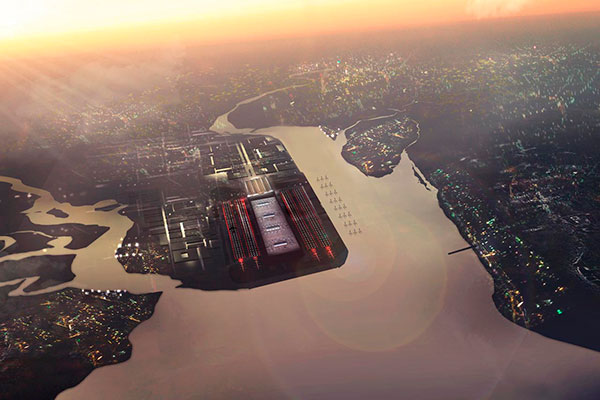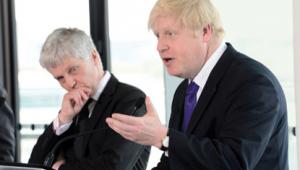By Andrew Pring | 2 September 2014
A proposal by the Mayor of London Boris Johnson to create a new Thames Estuary airport has been ruled out by the government’s Airports Commission which is developing plans for additional aviation capacity.
Despite intense lobbying by the mayor, the commission today concluded that the Thames Estuary plan ‘has substantial disadvantages that collectively outweigh its potential benefits’, including the up to £60bn public sector cost.

The commission had said it wanted to undertake further study of the option, but it will not now be taken forward for consideration to extend London’s airport capacity by 2030. Heathrow and Gatwick are now the only options for expansion being considered, with a final report is expected after next year’s election.
Announcing its decision today, the commission highlighted that “few people outside the direct advocacy groups support the idea’.
It added: ‘The aviation industry doubts the viability of the plan, local councils are opposed, and business groups are similarly unenthusiastic.’
Commission chair Sir Howard Davies said it was not persuaded that a very large airport in the Thames Estuary is the right answer to London’s and the UK’s connectivity needs.
‘While we recognise the need for a hub airport, we believe this should be a part of an effective system of competing airports to meet the needs of a widely spread and diverse market like London’s,’ he said.
‘There are serious doubts about the delivery and operation of a very large hub airport in the estuary. The economic disruption would be huge and there are environmental hurdles which it may prove impossible, or very time-consuming to surmount. Even the least ambitious version of the scheme would cost £70bn to £90bn with much greater public expenditure involved than in other options – probably some £30bn to £60bn in total.’
Davies admitted that there will be those who said the commission lacked ambition and imagination, but he said ‘we are ambitious for the right solution’. ‘The need for additional capacity is urgent. We need to focus on solutions which are deliverable, affordable, and set the right balance for the future of aviation in the UK.’
Responding to the announcement, Johnson said pledged to ‘continue the fight’ for his proffered option.
There was no conceivable scenario where a future government would approve the expansion of Heathrow, he said.
‘In one myopic stroke the Airports Commission has set the debate back by half a century and consigned their work to the long list of vertically filed reports on aviation expansion that are gathering dust on a shelf in Whitehall,’ he said.
‘Gatwick is not a long term solution and Howard Davies must explain to the people of London how he can possibly envisage that an expansion of Heathrow, which would create unbelievable levels of noise, blight and pollution, is a better idea than a new airport to the east of London that he himself admits is visionary, and which would create the jobs and growth this country needs to remain competitive. It remains the only credible solution, any process that fails to include it renders itself pretty much irrelevant, and I’m absolutely certain that it is the option that will eventually be chosen.’




















